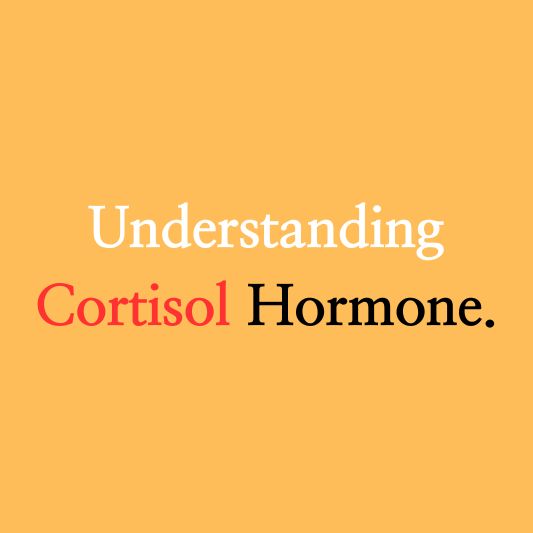In our fast-paced, modern world, stress has become an almost constant companion. One of the key players in our body’s response to stress is the hormone cortisol. Understanding cortisol and its role in our body is crucial for managing stress and maintaining overall well-being.

What Is Cortisol?
Cortisol is a steroid hormone produced by the adrenal glands, which are located on top of each kidney. It is often referred to as the “stress hormone” because its levels tend to rise in response to stress and low blood glucose.
The Role of Cortisol in the Body
Cortisol plays several vital roles in the body:
1. Regulation of Blood Sugar
Cortisol helps regulate blood sugar levels by promoting gluconeogenesis, the production of glucose from non-carbohydrate sources like amino acids and fatty acids.
2. Immune System Function
Inflammation and immune response are also influenced by cortisol. It helps to suppress the immune system to reduce inflammation and prevent overactive immune reactions.
3. Metabolism
Cortisol influences metabolism by breaking down proteins into amino acids, converting fats into energy, and storing excess glucose as glycogen.
Cortisol Production and Regulation The body’s cortisol levels follow a diurnal pattern, peaking in the morning to help us wake up and gradually declining throughout the day. Various factors, including the hypothalamus and pituitary gland, regulate cortisol production.
Cortisol and Stress
When we encounter stress, our body’s “fight or flight” response kicks in. This triggers the release of cortisol to provide a burst of energy, sharpen focus, and prepare the body to respond to the perceived threat.
The Negative Effects of Chronic Stress
While cortisol is essential for survival, chronic stress and continuously elevated cortisol levels can have detrimental effects on health. These include:
- Anxiety and Depression
- Digestive Problems
- Heart Disease
- Sleep Disorders
- Weight Gain
- Weakened Immune System
Managing Cortisol Levels
Managing cortisol levels is essential for maintaining good health and well-being. Here are some strategies to consider: – Stress Management Techniques
- Regular Exercise
- Mindfulness and Meditation
- Adequate Sleep
Natural Ways to Reduce Cortisol
Reducing cortisol levels naturally can be achieved through:
- Balanced Nutrition
- Limiting Caffeine Intake
- Spending Time in Nature
- Social Connections
The Importance of a Balanced Lifestyle
A balanced lifestyle that includes a healthy diet, regular physical activity, and relaxation techniques can help keep cortisol levels in check and promote overall wellness.
Cortisol and Sleep
Cortisol levels should naturally decrease in the evening to prepare the body for sleep. However, chronic stress can disrupt this pattern, leading to insomnia and poor sleep quality.
Cortisol and Weight Gain
Elevated cortisol levels can lead to weight gain, particularly around the abdominal area. Stress management and a healthy lifestyle are essential for maintaining a healthy weight.
Cortisol and Immune Function
While cortisol plays a role in suppressing inflammation, chronically high levels can weaken the immune system, making individuals more susceptible to infections.
Conclusion
In conclusion, cortisol is a vital hormone in our body’s stress response mechanism. While it is necessary for survival, chronic stress and elevated cortisol levels can have negative effects on our health. By adopting stress management techniques and maintaining a balanced lifestyle, we can keep cortisol in check and promote overall well-being.
FAQs
Q1. Can cortisol be too low?
Yes, low cortisol levels can occur, leading to conditions like Addison’s disease. It’s important to maintain a balance.
Q2. How can I reduce stress in my daily life?
Practicing relaxation techniques, exercise, and seeking social support are effective ways to reduce stress.
Q3. Is cortisol always bad for health?
No, cortisol is essential for survival, but chronic elevation can have negative consequences.
Q4. Can I measure my cortisol levels at home?
While home cortisol tests are available, it’s best to consult a healthcare professional for accurate assessment and interpretation.
Q5. What is the cortisol awakening response (CAR)?
CAR is the sharp rise in cortisol levels within 30 to 45 minutes of waking up, which is a normal part of the diurnal cortisol pattern.
